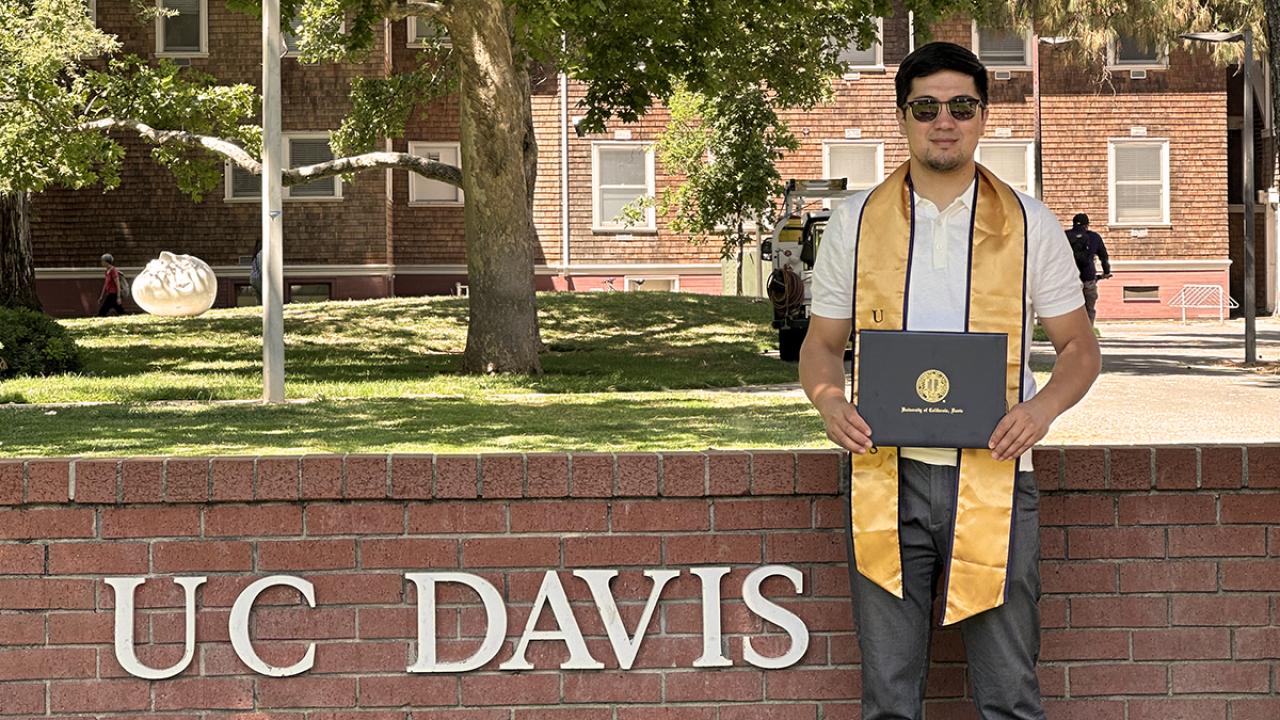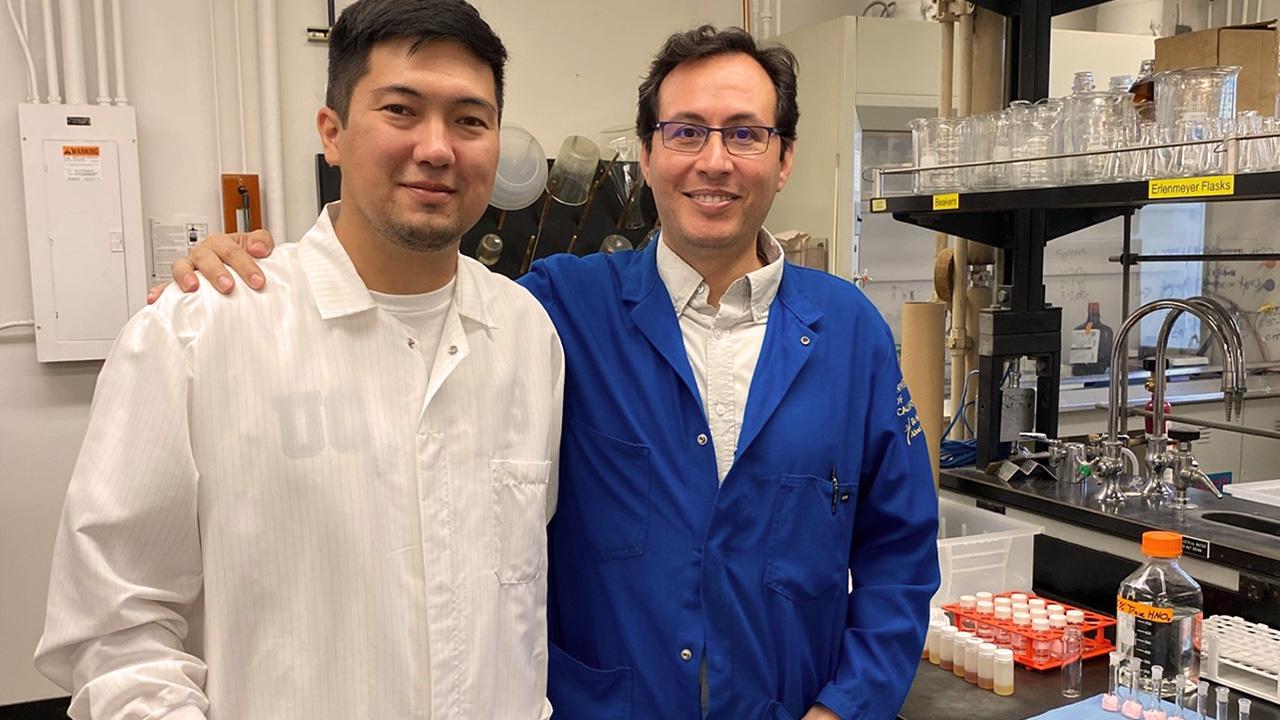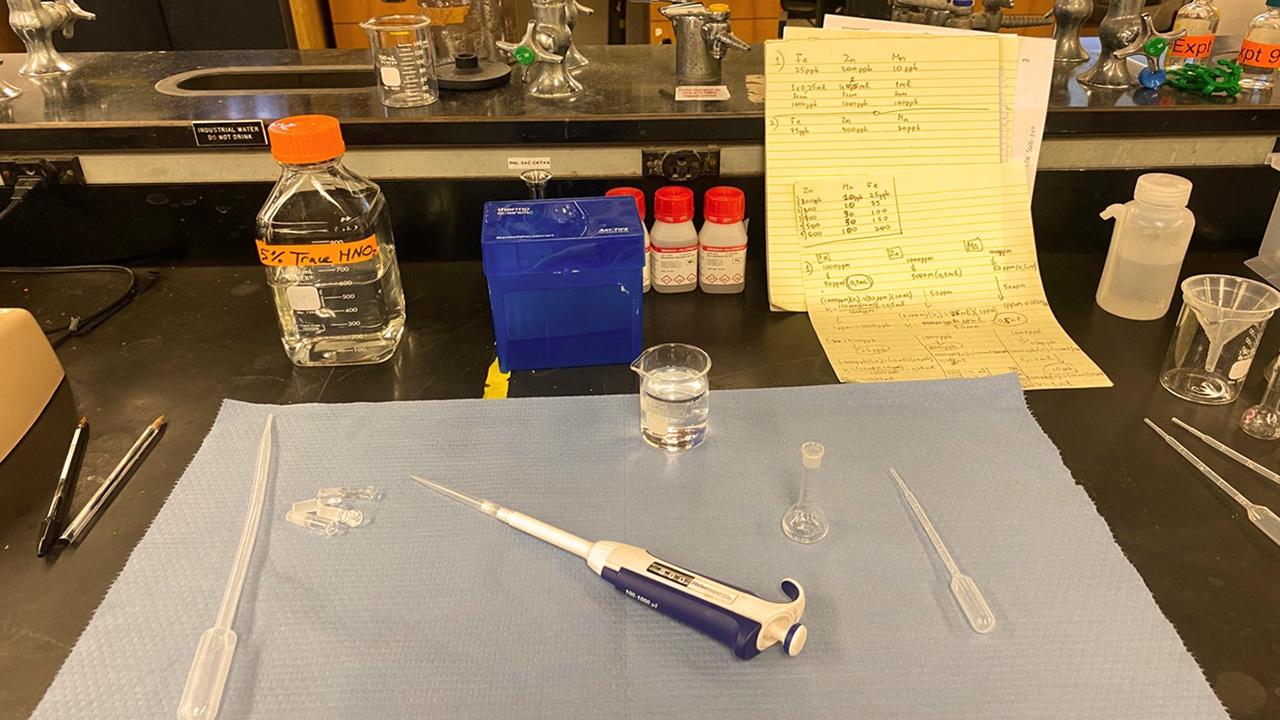
Science Without Borders: Zhankeldy's UC Davis Story
Kazakh professor gains hands-on research experience and new teaching insights through Bolashak Scholarship Program
Zhankeldy Doszhanov, a chemistry and biochemistry professor at West Kazakhstan Medical University, recently completed a professional development program at UC Davis as part of the Bolashak Scholarship for J-1 scholars. During the Kazakh government-sponsored program, Zhankeldy collaborated with UC Davis chemistry professor Matthew Augustine.
“When I came to the UC Davis campus, I was truly amazed,” said Zhankeldy, who immediately appreciated the size, amenities and student activities. “What impressed me most was the atmosphere. There are so many students from different backgrounds, and everyone is open and friendly. I felt very welcome from the beginning, and that made a big difference.”
Zhankeldy quickly settled into life at UC Davis, where he gained valuable insights into new research methods and teaching styles. The experience gave him a new perspective and bolstered his commitment to improving the scientific landscape of Kazakhstan. He’s returning to his home country with enhanced research skills and a deeper understanding of student-focused learning.


Can you describe your experience participating in Professor Augustine’s class and lab? What stood out most to you?
Professor Matt Augustine is a very knowledgeable and experienced faculty member with deep expertise in analytical chemistry. He kindly invited me to assist as a teaching assistant in his analytical chemistry class.
I really appreciated the excellent equipment and facilities in the chemistry building. The labs are very well equipped — they have everything needed for high-level research and education. I was glad to have the opportunity to work with these instruments and learn more about them in practice.
What was it like working with advanced lab equipment and techniques that may differ from what you use in Kazakhstan?
It was great. At UC Davis, I worked with advanced instruments like MP-AES (microwave plasma atomic emission spectrometer), a tool used for detecting metals in samples, and different types of spectrometers. They were very modern and well-maintained. In Kazakhstan, we mostly use traditional atomic absorption spectrometry.
The labs here are very well organized, and safety is taken very seriously. I learned a lot about how to work more efficiently. It helped me grow professionally, and I’m happy I had the chance to get hands-on experience with this kind of equipment. I hope to apply this knowledge back home in Kazakhstan.
How did the resources at UC Davis contribute to your research and learning?
UC Davis has amazing resources that really helped me grow as a researcher. I had access to advanced instruments that I had never used before. The library system is also great. I used online journals and books that are hard to access in Kazakhstan. It helped me deepen my understanding of environmental and analytical chemistry. And of course, the faculty support was excellent. Professor Augustine, a teaching assistant named Javier and a lab manager named Paul guided me during the lab course and always encouraged me to ask questions and learn more.
Tell us about your research project using hair samples to assess toxins. What are your goals for this project?
My latest research focused on studying toxic metals in the atmosphere in Kazakhstan — especially in cities near industrial areas. I measure metals like chromium and lead to understand air pollution levels and possible risks to public health.
While at UC Davis, I was inspired to expand my research to include analyzing human hair samples. Hair can show long-term exposure to environmental toxins. I plan to start collecting hair samples and compare them with atmospheric data. My goal is to better understand the connection between environmental pollution and human exposure.
What differences did you observe in how chemistry is taught in higher education in the U.S. compared to Kazakhstan?
One of the main differences I noticed is the level of student independence and practical work. At UC Davis, students are encouraged to work in small groups, choose their own research projects and actively participate in labs with modern instruments. The learning process is very hands-on and interactive. In Kazakhstan, the teaching is often more lecture focused and structured, with less opportunity for students to design their own experiments. Labs tend to follow fixed protocols.
Also, in the U.S., there is a strong emphasis on safety, organization and access to advanced equipment, which helps students develop practical skills that are very important for research. Overall, I think the U.S. system promotes more critical thinking and independence in students, which I find very valuable.
What have you learned during your time here that you’re most excited to take back and apply in Kazakhstan?
I learned a lot about using advanced analytical instruments. I’m excited to bring these skills and ideas back to Kazakhstan — especially the practical lab techniques and teaching methods.
Has this experience changed the way you think about higher education or your role as a teacher and researcher?
Yes, it has. I realized that teaching is more about supporting students to be independent and curious, not just giving them information. I also learned how important it is to use modern tools in research and to keep improving my skills. This experience has motivated me to bring these ideas back to Kazakhstan and help improve my country’s scientific education and research.
How do you think this experience will influence your future academic or professional goals?
It has strengthened my skills and understanding in research. I am working on developing my current project to a strong level so I can apply for a government grant in Kazakhstan. I also hope to continue collaborating internationally and grow as a teacher and researcher.
Would you recommend a program like this to other educators or researchers in Kazakhstan? Why?
Yes, absolutely. Programs like this provide a great opportunity to gain new skills, experience advanced research methods and learn modern teaching approaches. It also allows for cultural exchange and networking with experts and peers from around the world. This kind of opportunity can help educators and researchers improve their work and bring new ideas back to Kazakhstan, which is important for developing education and science.
Zhankeldy’s story exemplifies the power of global collaborations in advancing scientific research and education. UC Davis Continuing and Professional Education is proud of its long history of developing training programs for professionals from around the world. For more information, email cpeinternational@ucdavis.edu.
